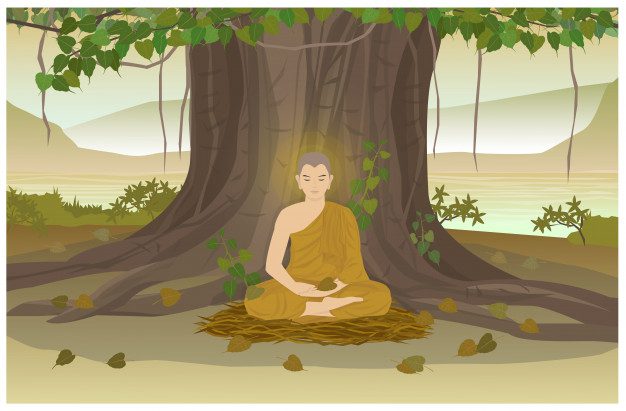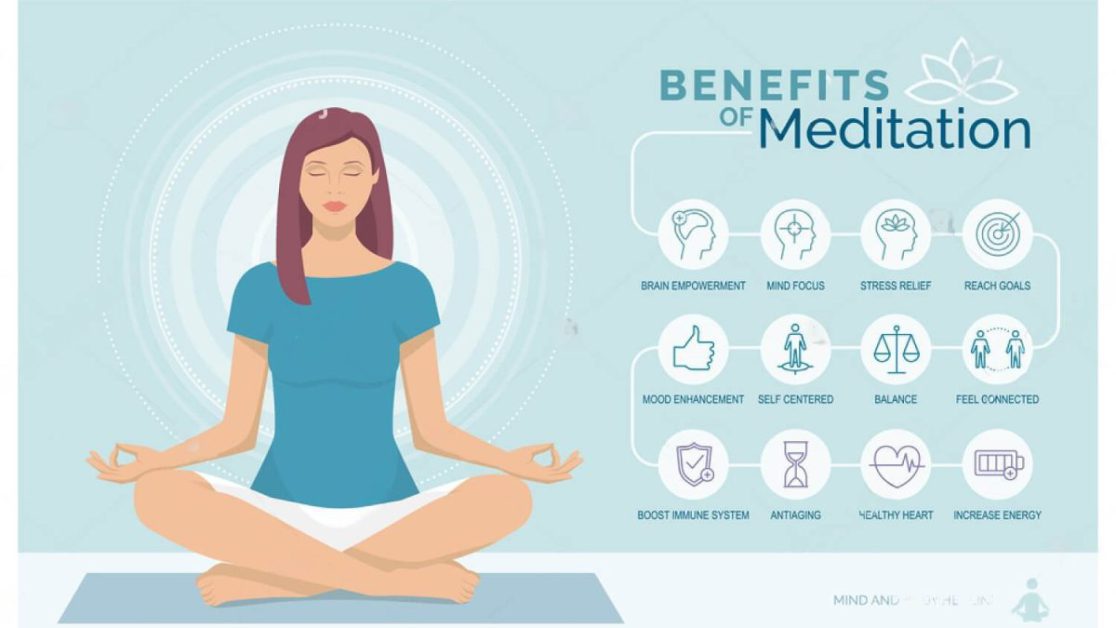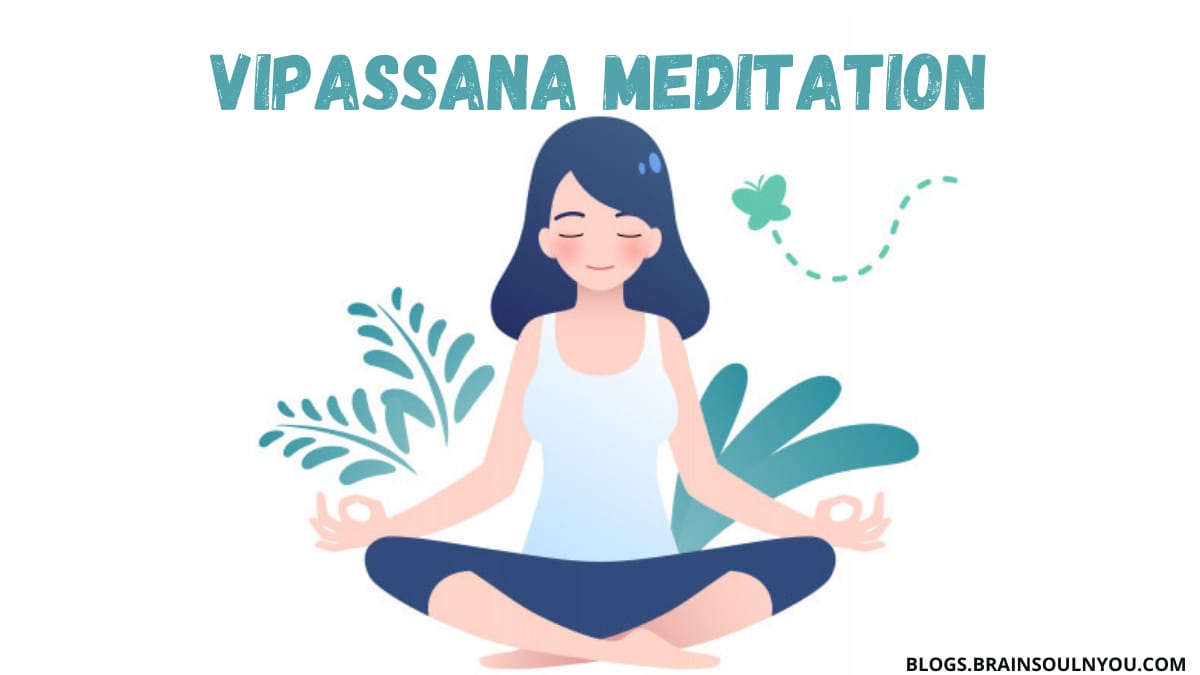Vipassana means “seeing things as they really are”. It is a logical process of mental purification through introspection or self-observation. It is a self-exploratory journey in which you focus on your inner self in a non-judgmental way.
What is Vipassana Meditation?
Vipassana Meditation, an ancient practice rooted in the teachings of Gautama Buddha, offers a profound path to self-discovery, inner peace, and insight. It is a technique that allows individuals to observe their own experiences with a clear and non-judgmental mind, leading to a deep understanding of the nature of reality and the cessation of suffering.
Vipassana is a method of self-transformation through introspection. It focuses on the deep interrelationship between mind and body, which can be experienced directly through disciplined meditation on the bodily sensations that constitute the life of the body, and which continually connect and condition the life of the mind.
It is an observation-based, self-discovery journey to the common root of mind and body that dissolves mental impurity, resulting in a balanced mind full of love and compassion.

Key Elements of Vipassana Meditation:
Mindfulness of Breath: Vipassana begins with developing mindfulness of breath, using the breath as an anchor to stay present in the moment. By observing the natural rhythm of inhalation and exhalation, practitioners cultivate a focused and concentrated mind.
Body Sensations: A crucial aspect of Vipassana is the awareness of bodily sensations. Practitioners observe physical sensations throughout the body without reacting to them. This process helps develop equanimity and deepens insight into the impermanent nature of sensations.
Non-Reactivity: Vipassana encourages practitioners to observe their thoughts, emotions, and sensations without clinging to them or pushing them away. By cultivating non-reactivity and acceptance, individuals develop a greater sense of peace and detachment from the transient nature of experiences.
Insight and Wisdom: Through sustained practice, Vipassana meditation leads to profound insights into the Three Universal Characteristics: impermanence (anicca), unsatisfactoriness (dukkha), and non-self (anatta). These insights foster wisdom and liberate individuals from the cycle of craving and suffering.
Retreat Practice: Vipassana meditation is often taught and practiced in the form of residential retreats, where individuals immerse themselves in a focused and disciplined environment conducive to deepening their practice. These retreats typically span several days or weeks, allowing practitioners to develop continuity in their meditation and experience profound transformative shifts.
The Goal of Vipassana Meditation: There are a lot of meditation techniques but in Vipassana meditation, you simply observe your inner self instead of consciously controlling the experience. The goal of vipassana meditation is to quiet your mind. It helps in focusing on the present and worrying less about the future.
Benefits of Vipassana Meditation
Vipassana Meditation, an ancient practice rooted in mindfulness and insight, offers a multitude of benefits for individuals who embark on this transformative journey. Like other forms of meditation, Vipassana meditation is beneficial for every level – Body, Mind, and Soul.
Here are some of the key benefits of practicing Vipassana Meditation:
Increased Self-Awareness: Vipassana cultivates deep self-awareness by bringing attention to the present moment and observing the mind and body with clarity and non-judgment. This heightened awareness helps individuals recognize patterns, habits, and reactions, leading to a greater understanding of oneself.
Stress Reduction and Emotional Well-being: Regular practice of Vipassana Meditation promotes relaxation and reduces stress. By developing equanimity and non-reactivity, practitioners learn to respond to challenging emotions with calmness and resilience, fostering emotional well-being and inner peace.
Improved Concentration and Mental Clarity: Vipassana enhances concentration and focus through the practice of sustained attention to the present moment. This sharpened mental clarity extends beyond meditation sessions, positively impacting daily tasks, decision-making, and problem-solving abilities.
Improves Mental Wellness: The stress-relieving effects of Vipassana meditation can improve your mental wellness. You feel light because vipassana purifies your mind and removes negativity from your mind.
Improve Memory: It improves memory, allows one to remember things well, and not to forget or confuse things that one has done for memory.
Cultivation of Compassion and Empathy: Vipassana nurtures a deep sense of compassion and empathy towards oneself and others. As practitioners develop insight into the interconnectedness of all beings, they naturally foster kindness, understanding, and a genuine concern for the well-being of others.

Deeper Understanding of the Mind-Body Connection: Vipassana meditation allows individuals to observe the intricate relationship between the mind and the body. This awareness helps in recognizing the influence of thoughts, emotions, and sensations on physical well-being, enabling individuals to make conscious choices for their holistic health.
Release of Negative Patterns: Through the practice of Vipassana, individuals become aware of deeply ingrained negative patterns and attachments. By observing these patterns with clarity and non-identification, practitioners can gradually let go of unhelpful behaviors, cravings, and attachments, leading to personal growth and liberation.
Cultivation of Equanimity: Vipassana teaches equanimity, the ability to remain balanced and accepting in the face of life’s challenges and ups and downs. This quality of mind allows individuals to navigate through difficulties with resilience and composure, promoting mental and emotional well-being.
Greater Insight and Wisdom: Vipassana meditation deepens insight and wisdom into the impermanent and ever-changing nature of reality. This profound understanding helps individuals develop a broader perspective, enabling them to live with greater clarity, purpose, and authenticity.
Enlightenment: By regular practice of Vipassana meditation one can attain enlightenment. Vipassana is the secret of the enlightenment of Lord Buddha.
Achieve Higher Consciousness: Through Vipassana, you can achieve higher consciousness. Higher consciousness is the consciousness that is attained by great sages, priests, and various Gods of different religions.
Reveals the Truth: It brings the individual, both theoretical and practical, to understand the truth on a deeper level, for example understanding the mind and soul. It reveals the truth of the universe and its creation.
The benefits of Vipassana Meditation are best experienced through regular and dedicated practice. Attending Vipassana retreats or learning from experienced teachers can provide a supportive environment for deepening the practice and reaping its transformative rewards.
How to Do Vipassana Meditation?
Vipassana meditation is a traditional form of Buddhist meditation that focuses on developing insight and mindfulness. Vipassana meditation technique is a simple and practical way to achieve true peace of mind and lead a happy, productive life. It includes a comfortable place, focus on breathing, observing the inner and outer world, and visualization.

Here are the basic steps to practice Vipassana meditation:
- Find a Quiet and Comfortable Place: Choose a quiet location where you can sit undisturbed for some time. It could be a meditation hall, a dedicated room, or any peaceful corner of your home.
- Assume a Comfortable Posture: Sit in a cross-legged position on a cushion or a chair with your back straight. You can also choose to lie down if sitting is uncomfortable. The important thing is to maintain a position that allows you to be alert and relaxed.
- Focus on Your Breath: Begin by paying attention to your natural breath. Observe the sensation of the breath as it enters and leaves your nostrils. Be fully present with each breath, noticing the subtle sensations without controlling or manipulating the breath.
- Develop Mindfulness: As you continue to observe your breath, your mind may wander. Whenever you notice that your mind has wandered, gently bring your attention back to the breath. Be aware of any thoughts, emotions, or physical sensations that arise without judgment or attachment.
- Expand Your Awareness: Gradually expand your awareness to include other sensations in your body. Observe any physical sensations, such as warmth, tension, or tingling. Pay attention to these sensations with equanimity, neither clinging to pleasant sensations nor resisting unpleasant ones.
- Observe Thoughts and Emotions: As thoughts and emotions arise, simply observe them without getting caught up in their content. Notice the transient nature of thoughts and emotions, letting them come and go without judgment or identification.
- Cultivate Loving-Kindness: As you develop mindfulness and insight, you can also cultivate loving-kindness (Metta) towards yourself and others. Practice sending well wishes and compassion to all beings, including yourself, your loved ones, and even those who may have caused you harm.
- Practice Regularly: Vipassana meditation is most effective when practiced consistently. Start with shorter sessions, such as 10 to 15 minutes, and gradually increase the duration as you become more comfortable. Aim for regular practice, ideally daily, to experience the benefits of meditation.
Embarking on a Vipassana journey requires commitment, patience, and an openness to the process of self-discovery. It is recommended to learn Vipassana meditation from experienced teachers or by attending Vipassana retreats where the technique is taught in its authentic form.
May your exploration of Vipassana Meditation bring you profound insights, peace, and wisdom as you tread the path of self-realization.
Love,
Saurabh Goel
Read more on A Subtle Secret of Meditation, Kundalini Awakening, Altered State of Consciousness, Consciousness Raising
Love,
Saurabh Goel
Saurabh Goel
He is the Founder and CEO of the Training and Counselling Company ‘Brain Soul & You’. He is an NLP Wellness Coach, Life Coach, Brain analyst, and Trainer for Education, Corporate, and Entrepreneurship. For more than 7 years, he delivered presentations on entrepreneurship, mind programming, and motivation. He did his B.tech in IT and later choose to be a successful psychologist. He is helping people in various ways through his counseling and training sessions.


